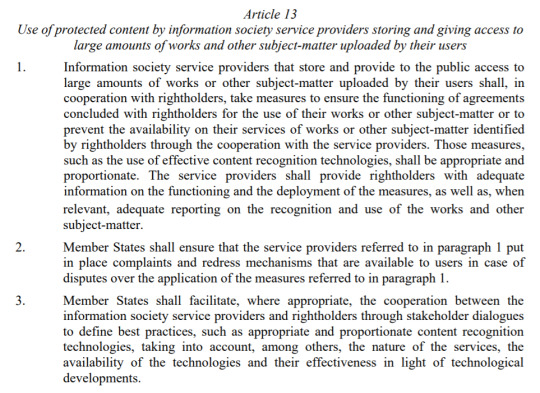#which speaking of - favoritism was also called out in the articles discussing the union lol
Explore tagged Tumblr posts
Text
((so one of our biggest stores is wanting to unionize lol

#((apparently it's like the third one to do so recently and I genuinely hope it works in their favor#all three were citing lack of training; safety; and pay which is. yeah that's not a surprise imo fdsgjhdsfjh#I'm in a manager-esque position and I have no idea wtf I'm doing bc I was basically thrown to the wolves lol#the company's response to abusive customers is basically ¯\_(ツ)_/¯#so hopefully any manager(s) on duty support the idea of calling the police and hope they actually bother to do something#pay is minimum wage for whatever state you're in and you get a two dollar increase in my position (which;;; LOL)#and the ceo sent out a letter today that was saying we did great on sales and we can expect a pay increase/bonus!#...buuuuut only if you're approved for it by your store manager#which speaking of - favoritism was also called out in the articles discussing the union lol#this job is far better than my last one but I'm definitely done with the company at this point#I might stick it out for another year - two max - but I'm definitely gonna be searching for an out soon))#ground control (ooc)#rant tw#((just in case? this kinda turned into a rant in the tags whoops sdgfhjdfshj))
4 notes
·
View notes
Text
shenannygans replied to your post “okay, just because i’m literally freaking out over the scope of this...”
I‘d love to read an in depth explanation why it isn‘t real. What I saw so far seems real to me and tbh I‘m really worried.

This is article 13. This is the article that everyone is (apparently) freaking out over.
I personally think that the hysteria that has been spreading is because of a very delicate mix of the far-right and the anti establishment hijacking the American net neutrality movement to push for their own agendas, a misguided SJW culture that’s way too America-centered here on tumblr, and just a general misunderstanding of how the EU works.
(Remember how the first thing that most britts googled after the EU referendum was “what is EU”? Yeah, it’s a bit like that.)
So, being upfront and transparent about this; I really don’t care about if you think the ideas being presented up in article 13 is horrible or whatever, because I personally haven’t really decided on it yet. What I want to set straight is that the apocalyptic death of “the European net neutrality” isn’t what article 13, or the directive on copyright in the Digital Single Market, is about.
Now, I know that EU and its bureaucracy is a literal hellscape. I’m a law student, and I’ve studied 15 points of EU and constitutional law, and 10 points of international law, and it wasn’t until I studied intentional law (2 years later) that the EU law finally started settling for me. (And from the sound of it; for the rest of my classmates too.)
So I know that the EU is complicated and stupid and that they don’t make it easier for themselves, but I just want everyone to know that the EU isn’t the life-sucking demons that the far-right is painting them up to be. They can be a massive pain in the ass, but they aren’t an all-powerful despotic.
And here’s why;
So starting with the basics of the overall law making process in the EU; Article 13 comes from a directive. It’s often been compared to GDPR, which is, weird, but also understandable, seeing how big of an impact GDPR had. But GDPR had such a huge impact because it was a regulation.
There’s two different ways the EU makes laws; through directives and regulations. Regulations, like GDPR, are directly applicable on all member states, are directly incorporated into member states’ national law systems, and can be directly plead for by EU citizens. Hence the huge impact.
Directives, on the other hand, are frame regulations with goals set up by the EU, and then it’s up to each and every member state to incorporate the directive into their national law systems and make sure that those goals are met. That is why the wall of text up there is a literal hot mess that makes little to no sense; it’s because it sets up a framework of what the EU wants to accomplish, then it’s up to the member states to come with their own solutions of how they want to accomplish that.
So, unlike GDPR, the copyright directive isn’t going to change the internet overnight once it’s voted through. It’s going to have to go through several different national law procedures, with various different outcomes, which could take years and, in some cases, might not even change anything at all.
(There are ways in which directives can be directly applicable for EU citizens, but then it has to be battled out through the EU court, so let’s make a noise if it comes to that, then, shall we?)
So you can’t fight this at an EU level. I mean, I guess you can, but be honest with yourself, did you even vote in the EU parliament election? Do you even know who’s representing you in the EU parliament? Do you even know what the EU parliament is, or what it does?
If you want to fight this, it would be so much more effective to do it on a national level.
First of all, depending on which member state you live in, this might not even effect you. The most common procedure when it comes to directives is that the national parliament/government looks at the goals the directive sets up, goes “lol ya our national laws already live up to this” (even if the national laws doesn’t live up to the directive, because, honestly, no one really gives that much of a damn, and the commission has too much to do to keep track of all the directives they spew out), and then everyone goes on with their lives.
But let’s say that your government would actually take measures to incorporate the directive into your national law system. Now, the law procedures are different in every country, but unless you live in a quasi-democracy (looking at you Hungary. And Poland.), you as a citizen, or at the very least an association of citizens, get to have a say in the matter.
They will most likely draft their own proposal of how the directive will be incorporated into your national law, and then you can take a stand if the change is for something good or bad. Call all your national politicians, twitter bomb them, whatever floats your boat. But the directive isn’t going to actually affect you until it reaches the national level.
The European net neutrality is not going to be killed over a night through a directive.
First of all, because that’s not how a directive works, and second, the EU doesn’t have that kind of power, even if they wanted to.
The EU is an odd bird in the international community. It has its own, unique way of operating, and it’s the only “semi-above” association of nations so far in the world. But it’s still an association of nations, and the union’s entire basis is the surrendering of sovereignty from each member state. And while that scope of sovereignty is a constant battle between the union and its member states, that sovereignty still always originate in the member states.
And no member state has surrendered enough power to allow the EU to censor the entire internet.
Copyright laws are also so weird. Like, I can’t speak for any other country, but in Sweden we already have copyright protection for every human made creation. It’s already forbidden by Swedish law to use others copyrighted material without their consent. (We’re one of the countries that would most likely just go “lol ya our national laws already live up to this” if the directive was passed.)
But copyright laws are so incredibly futile.
In Sweden we have laws forbidding piracy copying of just about everything. Still I can (illegally) stream countless of episodes of my favorite TV series, and movies, and music, and download pictures left and right, and no one really bats an eyelash. It’s a shitty thing to do, yeah, sure, and the copyright holder has every right to chew me out over it.
But the point still stands; we already have regulations of it, but nothing really happens.
Copyright infringement is simply too big of a problem, and not acute enough, to be solved. Like, yeah, it’s shitty downloading copyrighted material, but it’s a little more urgent to actually pay attention to our collapsing environment and the impending third world war.
So copyright regulations are statement regulations. They tell us that “yeah, this is a shitty thing to do, please don’t do it”, and then most of us do it anyway. Because a proper sanction system isn’t in place. And it’s most likely going to take a hell of a long time before it does, if it ever.
And it’s not going to come from the EU.
Because then there was the goddamn “link tax”. I just. Oh god.
First of all, “link tax” is the literal worst name to use, because the EU is outright and strictly forbidden to deal with taxes. That’s one sovereignty posts that absolutely no member state is willing to give up. The EU has nothing to do with taxes whatsoever.
So again, this would be dealt with and regulated on a national level. Even if it would be a tax or a fee, it would go to the national economy, and not to the EU. The EU is directly funded by the member states budgets (which they are actually discussing right now, tbh), import duties (because while the EU has no right to deal with taxes, import duties are an entirely different matter because of the inner market), and fines from when you don’t follow EU regulations (which, once again, the commission is way above their ears trying to sort out (hello Sweden’s continuous refusal to become a part of the Euro)).
So if the “link tax” would in any way end up benefiting the EU, it would be through a fine, which would only happen if your member state refused to incorporate the directive. Which is a long way to go, and tbh, isn’t that likely.
And as you can see above, article 13 doesn’t mention a “link tax”, or links, or taxes, and neither does the rest of the directive.
So, no, the EU isn’t gonna make you pay for linking stuff. That’s ridiculous.
And you wanted an in-depth explanation of why that fucking video isn’t real, and I barely even touched the video and haven’t even started going through what article 13 even says, but I’ve already talked my own ear of and this probably makes no sense so. Don’t be afraid to ask me more-head-on questions, and I’ll try to answer them as best as I can!!
Just. Don’t freak out. The internet is safe, for a good long while still, no matter what happens to the directive once its voted on on June 20th.
The memes are still safe.
922 notes
·
View notes